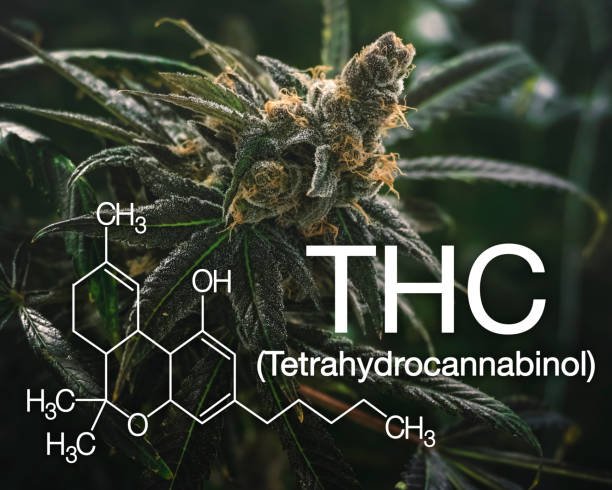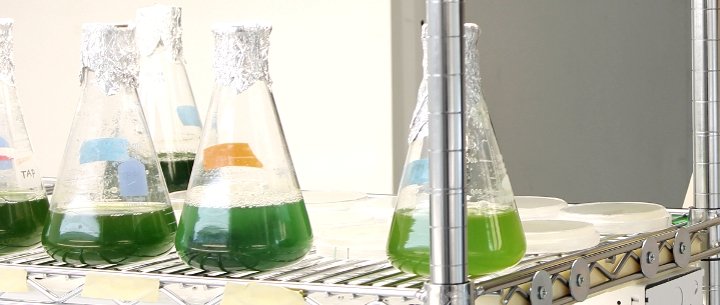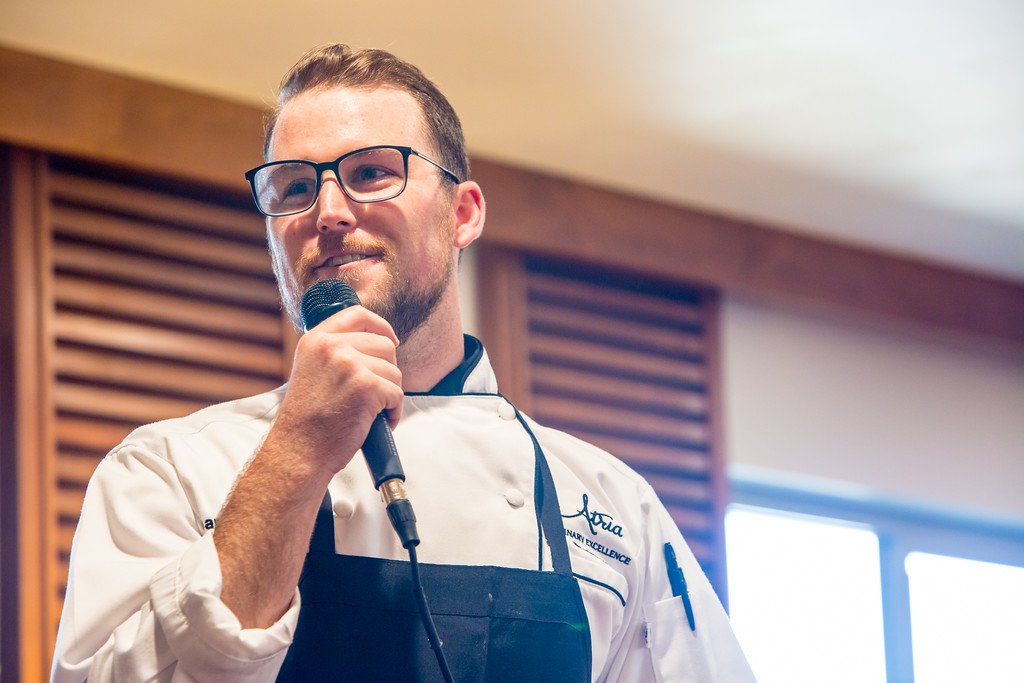


From Sea to Soil: San Diego's natural pharmacy
Come join taste of science for another evening of discussion! This time we’ll be hearing from two experts working to turn San Diego’s natural treasures into life-changing medicines.

10 Years of taste of science: trivia night
Help us celebrate a decade of taste of science at Trivia Night!

Grounds for Discussion: the complex world of coffee
Come join us for an evening of discussions surrounding the science behind your morning pick me up!

taste of science Trivia!
Do you love science, beer, and friendly competition? Join the taste of science San Diego team for a (free-of-charge) science Trivia Night to wrap up our 2023 festival. There is no need to attend prior taste of science events to join, although doing so may give you a leg up on your opponents! There will be a raffle and ample opportunities to win prizes.

A Celebration of Fermentation
What do beer, sourdough bread, and kimchi all have in common? Fermentation has become a popular topic in recent years, but how does it actually work, and in what ways does it benefit our health?
Find out of all this and more from our two experts!
Check out our speakers:
Celeste Allaband, DVM/PhD
Postdoctoral researcher at UC San Diego
Talk title: Fermentation and Digestion
Veterinarian and microbiome researcher, Celeste Allaband, will be talking about how the collection of bacteria and other microscopic creatures of the gut microbiome can help both animals and people digest their food and stay healthy. She will cover a variety of different topics - including probiotics, different ways animals digest their food, how diet impacts health, and debunk an animal myth or two.
Sean Kirkpatrick
Talk title: Food preservation through fermentation
Owner of Down To Ferment
Food preservation demonstrated through the use of Lactobacillus and proper methods of creating a safe environment to ferment.

Sexy Science: Gonads and Genitalia
Explore the fascinating science behind reproduction, and the biological systems that created all of our existences.
Check out our speakers:
Pascal Gagneux, PhD
Professor of Pathology and Anthropology, UC San Diego
Talk title: Back when you were a sperm
We each owe our existence to the unlikely encounter between one live sperm and egg, which gave rise to our unique zygote and its trillions of identical descendants (your body cells). I will take you on the perilous journey of the one very lucky sperm and hope to convey a deep appreciation of your existence in the face of unimaginable challenges! You exist thanks to amazing molecular subterfuge on the side of sperm and stringent quality control exerted by mothers along their reproductive tract.
Amanda Lewis, PhD
Professor of Ob/Gyn and Reproductive Sciences, UC San Diego
Talk title: Mysteries of the human vagina and its microbiome
Have you ever pondered the mysteries of the vagina? The patterns of bacteria living in this microbiome are strongly linked with health and diseases, but what do we really know about them? Join us for a stimulating interactive conversation with more than a dozen potential topics to be (privately) ranked by participants for discussion, among them, the vaginal microbiome across the female lifespan and the role of sex acts in microbe-related disturbances of the genital and urinary tracts.

Get Stoned on Science
Have you ever wondered how exactly cannabis affects your brain and body?
Join us as we explore the fascinating science of cannabis with our two experts!
Check out our speakers:
Michelle Sexton, ND
Assistant Adjunct Professor in Anesthesiology Department, UC San Diego
Talk title: Eat, Sleep, Relax, Protect, Forget
Eat, Sleep, Relax, Forget Protect is a phrase that was coined to describe roles of the endocannabinoid system. This system operates as a stress-recovery system with homeostatic roles across every all body tissues. Fifty years ago, THC was isolated from cannabis, and using cannabis can be fun for some, and medically indicated for others. How can too much cannabis be a potential problem? This informative talk will tell you more!
Sierra Wilson
Neuroscience PhD student at UC San Diego
Talk title: The Neuroscience of Cannabis
Ever wondered how cannabis alters consciousness? Want to understand what 'THC' and 'CBD' are and how they work? Or perhaps you've heard about all the benefits of 'terpenoids' and 'phytocannabinoids' at your local dispensary--do they live up to the hype? In this talk, we'll go over the main ways cannabis affects the brain to produce euphoria and we'll also talk about some of the most popular compounds in cannabis like THC, CBD, and terpenes!

tasteofscience Trivia Night!
Do you love science, beer, and friendly competition? Join the taste of science San Diego team for a (free-of-charge) science Trivia Night to wrap up our 2022 festival. There is no need to attend prior taste of science events to join, although doing so may give you a leg up on your opponents! There will be a raffle and ample opportunities to win prizes.

Reef Rescue: A Noah's Ark for Coral
Coral Reef Arks are floating coral reefs being used to study how we can give the threatened communities of coral a second chance to thrive. Join us to hear from Dr. Forest Rohwer, who will talk about what we've learned so far and future plans for deploying these ocean tools.
Forest Rohwer
Viral ecologist that loves IPAs
“Coral Reef Arks”
Coral Reef Arks are floating coral reefs. The arks are being used as tools to study how coral reefs develop with the long-term goal of restoring degrade reefs. Currently, we have deployed arks in Puerto Rico and Curacao. I will talk about what we've learned so far and future plans for the Coral Reef Arks.

Taste of Algae
What if we told you that by mixing tiny algae cells with just light and a bit of salt, we can produce all kinds of sustainable products such as edible vaccines, anti-cancer drugs, and even shoes and surfboards? Come join us to learn about microalgae biotechnology!
Note: This event is for ages 21+. Dogs are welcome!
João Vitor Dutra Molino
I'm a pharmacist by degree, a biologist by trade and an open scientist by heart.
“Microalgae biotech: the solution to almost everything”
Bioproducts come in different forms and shapes. In this talk, I will present research/ideas that our group has and is performing to use microalgae, tiny little algae cells, that produce a variety of products with just light and a bit of salt. In particular, I will describe how we can use these microorganisms to make sustainable products from shoes to hues.
Yasin Torres-tiji
Postdoctoral Scholar in the Mayfield Lab at the University of California San Diego where he works in algae biotechnology.
“Microalgae biotech: the solution to almost everything”
The Mayfield lab focuses on creating an array of bioproducts from algae that will ensure that mankind has a sustainable future. Microalgae are incredibly powerful microorganisms that sit at the bottom of the ecosystem pyramid providing food and biomolecules generated from sunlight and CO2 in the same way plants do, but much more efficiently. We can harness that power and create things like edible vaccines, anti-cancer drugs, biopolymers to make shoes and surfboards, food and feed, and biofuels.

Extracting Meaning from Motion: From Language to the Ocean
From gestures and sign language to ocean waves, motion can tell us a lot about the world. Join us to kick off our first in-person taste of science San Diego event since 2019, and hear from two local scientists about their work on human language and oceanography!
Carol Padden
I'm Dean of the School of Social Sciences at UCSD, and faculty in Communication. My PhD is in Linguistics, and I study sign languages of the world.
"Multimodality in Human Language"
Most humans will grow up using a spoken language, but given certain conditions they will learn a sign language instead, or in addition. Sign languages exist nearly everywhere on the planet, including in Greenland, Iceland, Papua New Guinea and Bali. There are even cases of sign languages used by hearing people to communicate with one another. Human language is fundamentally multimodal, with as many variations of speech together with gesture and sign as there are languages around the world.
Jen MacKinnon
Physical Oceanographer
"Swirling and Churning, how ocean currents and temperature shape everything from the Arctic sea ice to Monsoons"
My research concerns small-scale turbulent processes in the ocean. Away from the surface and bottom boundary layers, most turbulent mixing is driven by breaking internal gravity waves, which in turn are largely forced by tides and winds. The net effect of this mixing is crucially important for everything from regional pollutant dispersal and nutrient budgets to global patterns of heat distribution, which is especially important in a changing climate. I spend part of my time trying to understand the complex nonlinear dynamics that control where and how internal waves break and how much turbulence is produced. This often involves ship-based fieldwork because we can watch the actual process unfold.

The Art of Science
Though often thought of in opposition, art and science are intricately linked. Both enable us to discover truths about the world around us and share those discoveries with others. Join us as we celebrate the beautiful intersection of art and science!
Special thanks to ilus and the Salk Women & Science program for generously loaning artwork for this event.
Drinks will be available for purchase.
Marty Sereno
75% of the neurons in your brain are in your cerebellum
The human cerebellum ("little brain") lies below the cerebral cortex. Despite its small size, it contains 75% of the neurons in the brain, packed into tiny horizontal folds. It has expanded even more than the cerebral cortex in evolution and is involved in movement, language, and cognition. This talk described how we reconstructed its tightly folded surface and completely unfolded it, in preparation for studying the organization of this often neglected yet critical part of the brain.
Janet & Mark Hubka
Taking Art to the Cellular Level
At ilus, we discovered art in the laboratory - in the beautiful images of human cells that reflect life at the microscopic level. We bring about 15 scientific pictures to our presentations and talk about the great work being done in stem cell research at institutions around the country. In our school programs, we believe that art can inspire kids in STEAM.

Hacked!
We're all guilty of agreeing to terms and conditions online without actually reading them, but nowadays people are starting to be more careful with their data. Are you among the many who are increasingly concerned about who has access to your data and what it's being used for? Then join us as we explore the science of cyber security.
This event is for ages 21+. Signature drink specials will be available. No food will be available for purchase, but feel free to bring your own or have it delivered directly to Park & Rec!
Geoffrey M. Voelker
Evidence-Based Internet Security
The large-scale compromise of Internet hosts and services forms a platform for supporting a range of cybercrime activity that affects millions of users. In this talk I will present research that our group has performed over the past decade on the problems posed by these threats. In particular, I will describe an "evidence-based" approach to measure, analyze, and undermine various kinds of cybercrime.
Teresa Macklin
What does a CISO do, anyway?
A Chief Information Security Officer is responsible for a wide variety of things. These range from policy through operations through investigating incidents. Your day-to-day work can be very dry and then suddenly turn really urgent. I’m going to focus on some of the interesting situations that come across my desk. I’ll talk about how we investigate incidents, how we try to figure out a new application will turn out badly for us, and then talk about how cybersecurity issues may affect you.

Lo Que el Tiempo No Cura
Este evento del "taste of science San Diego 2019" es en español.
Desde el cambio climático a enfermedades, existen cosas que el tiempo no cura. Acompáñenos en una noche dedicada a estos temas y cómo la ciencia nos ayuda a resolverlos.
No hay servicio de restaurante, pero se permite traer o hacer pedidos de alguno de los muchos restaurantes locales.
Lluvia Flores-Renteria
Los efectos del cambio climático en las plantas y sus amigos
Explicaré los efectos de las altas temperaturas y la creciente sequía, ambos pronosticados por el cambio climático, en las plantas y sus amigos y cómo lo superan. En las plantas, las altas temperaturas y la sequía pueden causar embolismos, reducción de la viabilidad de los gametos, modificación del tiempo para reproducirse e incluso cambios en el sexo de la planta! El cambio climático puede interrumpir interacciones beneficiosas entre las plantas y sus amigos tanto en la superficie de la tierra, como los insectos, o bajo el terreno, como los hongos.
Israel Ramirez-Sanchez
El lado oscuro del chocolate sobre la salud
Los efectos beneficos del cacao han sido conocidos desde tiempos prehispanicos. Las civilizaciones antiguas como Mayas y Aztecas conocian de los poderes asombrosos que este fruto podia ejercer sobre la salud y la fuerza fisica. En la actualidad los cientificos nos enfocamos en estudiar a profundidad, en modelos experimentales, los mecanismos celulares y moleculares por medio de cuales los componentes del cacao, especificamente el flavanol epicatequina pueden ejercer estas funciones.

Sex, Drugs, & Rock & Roll
How do sperm “sweet-talk” the female immune system in order to survive? How does the brain adapt to being plastered? Why can humans move to a beat? Join us as we search for the answers to these questions and more!
Special research & development as well as rare, barrel-aged beers will be available for purchase in the Tasting Room. Food will be available for purchase from the GF Gastro truck.
Pascal Gagneux
Secret Life of Sperm
Mammalian sperm are highly specialized cells, each containing a unique haploid genome. They navigate dangerous territory in order to fertilize an egg. Sperm are equipped with special molecules that allow them to “sweet-talk” the female immune system, to allow the survival of at least one sperm. How these cells, that lack any gene expression manage to carry out a sequence of dramatic tasks remains poorly understood. I will take you to where half of you consisted of such a tiny, intrepid traveler.
Ksenija Marinkovic
Brains n' booze: Acute effects and neuroadaptation to binge drinking
Alcohol is a social lubricant widely consumed to unwind and to enjoy food and company. We have used complementary imaging methods to examine where and when alcohol intoxication changes brain activity, how it interferes with making decisions, and why it leads to poor self-control. And what about binge drinking which is on the rise? How does the brain adapt to being plastered? Can we detect these neuroadaptive changes and can they be used to indicate how much is too much on an individual basis?
Adena Schachner
Dance, dance, evolution: The origins and consequences of musicality in babies, birds, and other beings
Music and dance are cultural universals, and begin early in infancy. My work explores the origins of these fundamentally human behaviors, from an evolutionary and developmental perspective. Why can humans move to a beat, while many other species cannot? What can children’s early development tell us about the musical mind? And what consequences does musicality have, for social and even moral decisions?

Curing What Ails You
From individualized cancer therapies to sequencing viral DNA, modern approaches to disease are all about the specifics. Join us for a discussion of breakthrough technologies that turn these details into discoveries that affect the way we view disease and how to fight it.
No food will be available for purchase, but outside food can be brought in or delivered to the tasting room from one of the many local restaurants.
Matthias Pauthner
Genetics gone viral: Tracking outbreaks in the 21st century.
In my talk, we will time travel from the beginnings of epidemiology in crowded 19th century London, to state-of-the-art approaches using next-generation DNA sequencing that were deployed in 2014 to track the spread of Ebola virus in West Africa. Along the way, we will encounter virus hunters, deadly disease outbreaks and the stories of the people affected by them. Lastly, we will take a look at the future of genetic epidemiology and forecast the Zombie Apocalypse ... maybe.
Ezra Cohen
"If you will it, it is not a fantasy" - Curing Cancer with Immunotherapy
Cancer is a disease of genetic alterations such but every cancer carries a different set of mutations so that no two individuals have the same disease. Furthermore, each person's immune system recognizes their cancer differently. Putting those observations together has allowed us to devise therapies that are truly individualized, based on what a person's cancer and immune system are telling us. We use these novel treatments to augment existing immunotherapy in an effort to cure cancer.

Timing is Everything
When it comes to your body and mind, timing is everything. Call it a day and join us as we explore the science of circadian rhythms.
Food will be available for purchase from God Save the Cuisine, or feel free to bring your own!
Susan Golden
How bacteria tell time
Like most animals and plants on the planet, some bacteria – the photosynthetic cyanobacteria – have a circadian clock that orchestrates the timing of processes in the cell during the course of a day. Research has revealed the cyanobacterial clock to be a fantastic nanomachine that coordinates the daytime and nighttime activities of the cell.
Emily Manoogian
Why WHEN you eat is just as important as what you eat
Research has shown that our daily eating, sleeping, and activity patterns can affect health and determine our long term risk for various diseases. This talk will cover how the timing for calorie intake influences your body's rhythms, and how small behavioral changes can lead to large health benefits.
Michael McCarthy
Circadian Rhythms and Bipolar Disorder
Bipolar disorder is a serious psychiatric condition defined by episodic depression and mania. Patients with bipolar disorder show profound changes in sleep, and energy indicating the brain’s circadian clock is affected. Recent research has identified genetic clock mechanisms in humans and investigated if the clock malfunctions in bipolar disorder. In bipolar disorder, cellular rhythms are weak and the clock “ticks” too slowly. Circadian rhythms may determine which patients respond to treatment.

Pandemics & Panaceas
Our planet is rapidly changing, and with those changes comes a demand for new solutions to growing energy, health, and agricultural challenges. Join us for a night of science dedicated to the obstacles presented by worsening climate change and how science can help us overcome them.
Food and drinks will be available for purchase from the main bar.
Cami Collins
Power for Our Future: The Dawn of the Fusion Energy Era
Researchers are learning how to control 150 million-degree plasmas to recreate the power of the sun, where hydrogen fuses into helium and releases massive amounts of energy. Experiments at the DIII-D tokamak in San Diego are advancing the science needed to achieve net fusion energy gain in new devices like ITER in France, where construction is nearly 60 percent complete. We’ll discuss highlights and challenges in bringing this clean, safe, and nearly limitless source of electricity to the grid.
Stanley Maloy
Zika, Ebola, and more! Where are new infectious diseases coming from?
Although infectious diseases have always plagued humans, the appearance of new infectious diseases has been increasing over the last several decades. Some of these new diseases come from our exposure to microbes that have existed in secluded environments for many years. However, some of the new diseases seem to arise de novo. Understanding how new diseases evolve may allow us to develop more effective ways to stop epidemics before they happen. I will talk about where these new diseases come from.
Sarah Shackleton
Ice Sheet Time Machine
We'll go over how ice cores can teach us about past climate and how we can learn about future ice sheet vulnerability and sea level rise from past warm periods.







Science Café
Have you heard? Susan Shore and Ross Maddox will present their research in this Science Café.

Sex and chocolate
Join us as scientists Pascal Gangeaux and Francisco Villarreal discuss sex and chocolate! Pascal will explain why it takes hundreds of millions of sperm to fertilize one egg, and Francisco will enumerate the history and health benefits of cocoa.

Closing in on stem cell therapies
Catch up on the latest developments in stem cell therapies with scientist Jeremy Pettus!

Climate change bites: how to stay cool
Scientists Stanley Maloy and Jenni Vanos will explore some of the implications of climate change beyond rising temperatures.

Perceiving and believing in a world of "alternative facts"
UCSD scientists Drew Walker and Megan Bardolph will discuss the science underlying how our perceptions and beliefs shape our mental models of the world

Autism: Hype vs. Hope
Scientists Leslie Carver and Eric Courchesne will delve into science's current understanding about autism. Leslie will explore social reward processing in those with ASD, and Eric will explain why the constant reported "breakthroughs" haven't seemed to make a real difference yet.

Demystifying GMOs
Find out what scientists Steve Briggs and Julian Schroeder have to say about the safety of GMOs (genetically modified organisms)

From the Highest Mountains to the Deepest Seas: Understanding Adaptations to Low Oxygen
Join UCSD researchers Erica Heinrich, Michael Tift, Esteban Moy and Naomi Deacon as they discuss the genetic and physiological adaptations in human populations living more than 14,000 feet above sea level in the Tibetan and Peruvian highlands, mammals that experience low oxygen while diving at sea and during sleep apnea events on land, and laboratory research in animal models that aims to better understand system-wide low oxygen tolerance.
RSVP HERE!
Speakers (all UCSD):
- Erica Heinrich
- Michael Tift
- Esteban Moya
- Naomi Deacon




























